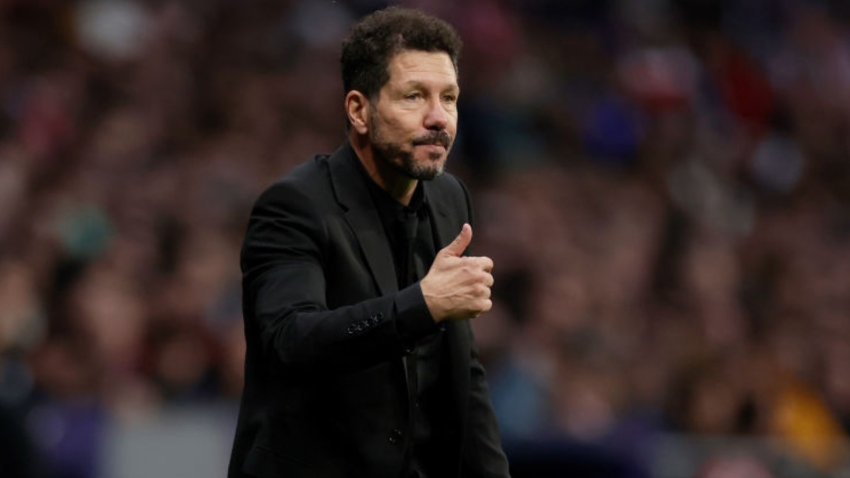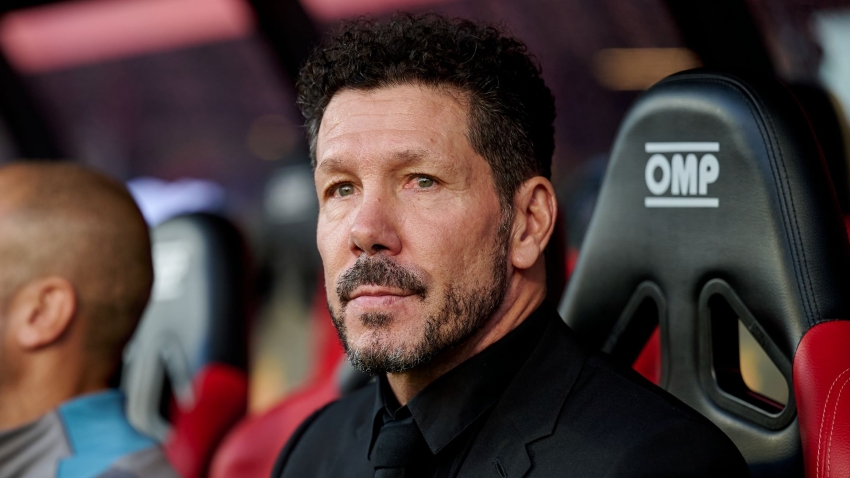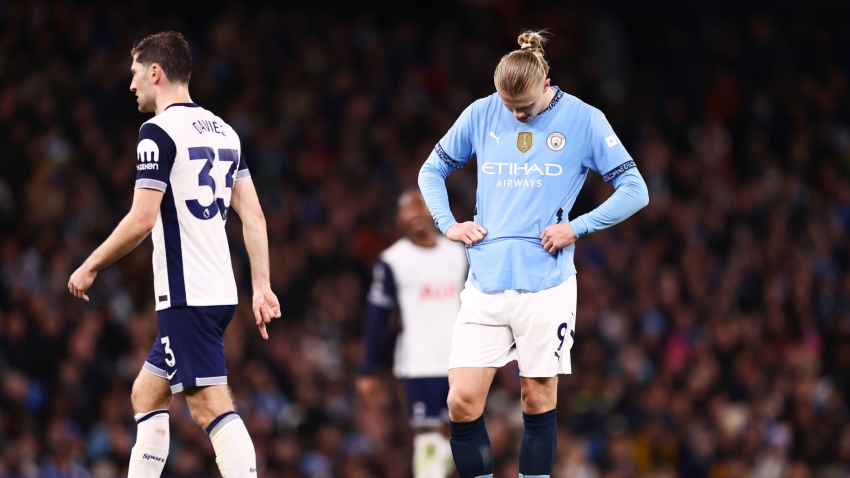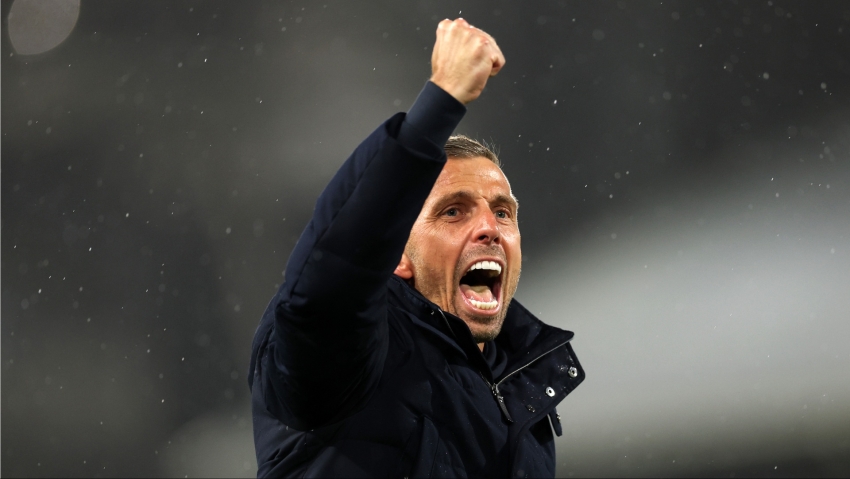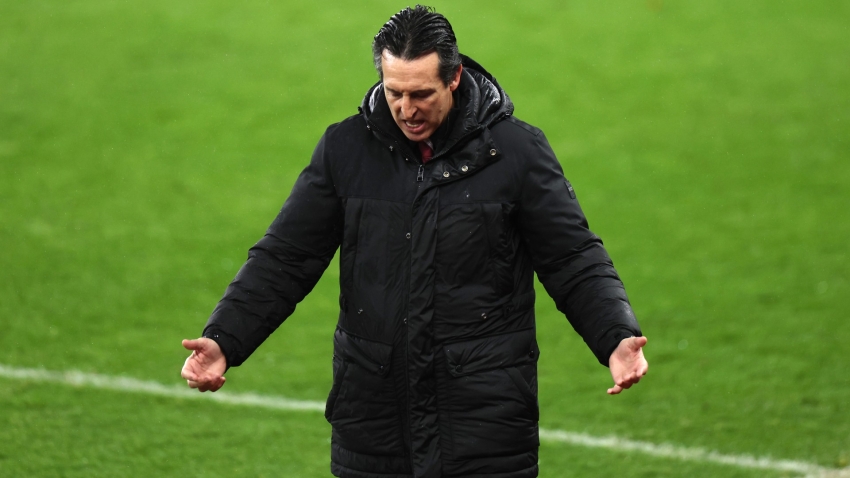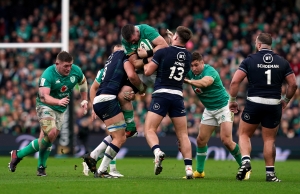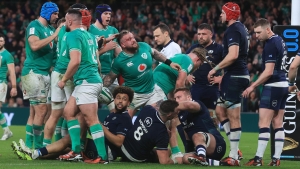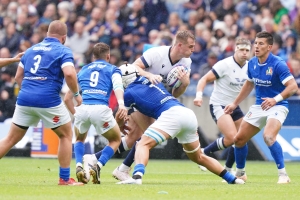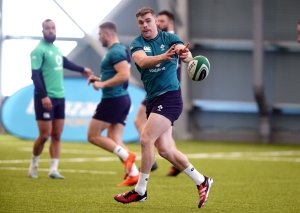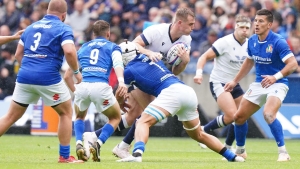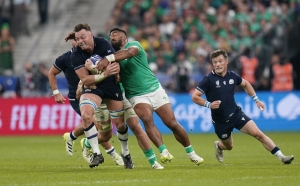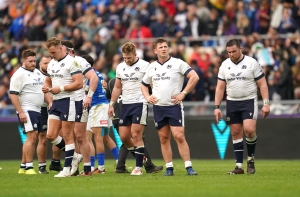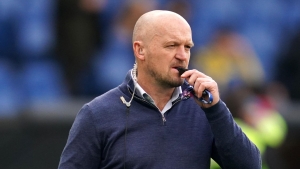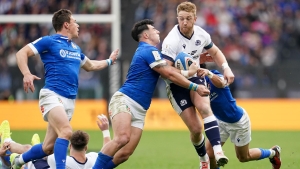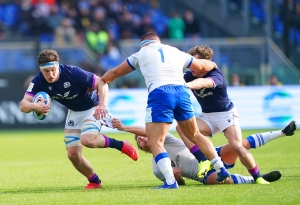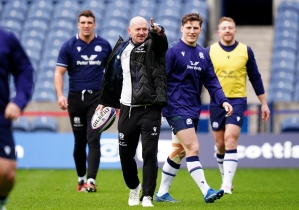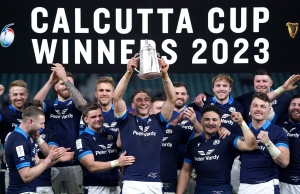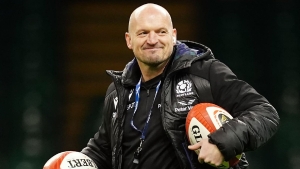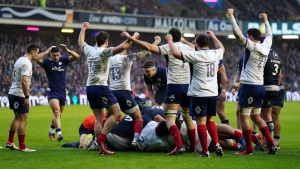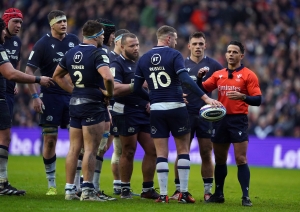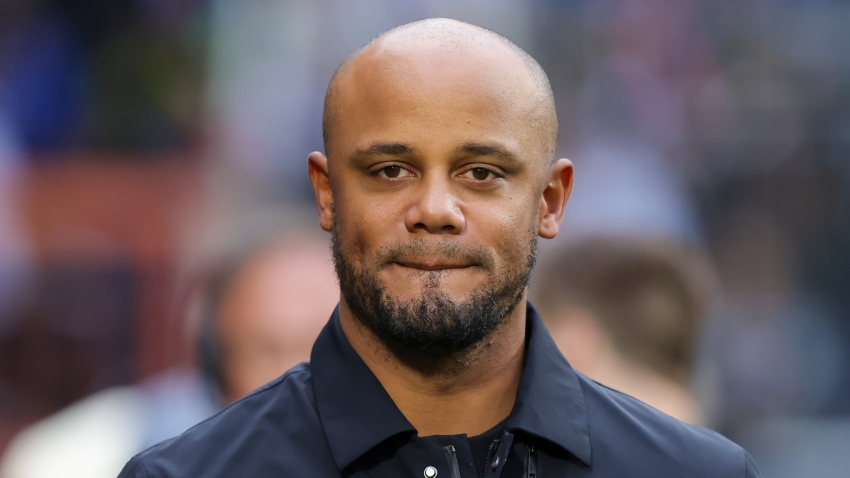Joe Marler is desperate to help England wrestle back the Calcutta Cup on Saturday after growing exasperated with Scotland’s recent dominance of the fixture.
The 33-year-old prop grew up in an era when the Red Rose firmly held the upper hand over the Scots and he was on the winning side four times in a row after first playing in the highly-charged showdown in 2014.
The tables have turned since 2018, however. Scotland have lost only one of their last six matches against the Auld Enemy under Gregor Townsend and go into this weekend’s match buoyed by having won each of the last three.
That situation rankles with Marler, who is intent on ensuring England are celebrating on enemy territory come Saturday evening.
“It would just be nice to be on the winning end of it for once because it has been so long since we have,” he said at Murrayfield on the eve of the match.
“Obviously we had 2020, but the continued dominance from Scotland over us – it has been a long time now.
“From the start, we hadn’t lost to Scotland. Then the 2018 game the tide started to turn, the players that have come through in the Scottish side, you go, ‘Hang on, they have got some world-class operators now’.
“And it does shift the mindset slightly coming in as underdogs.
“The last few years without that cup, seeing Finn Russell and Greig Laidlaw, that video of them with their shirts off and singing with the cup.
“I wish I could be doing that rather than watching it. Or that famous Finn Russell photo where he’s got his Spiderman hands up and he’s loving it.
“That stirs passion in me to go, ‘I want that cup’, and I know a number of the other boys in the team want that cup back as well.”
Marler is pleased to still be in a position to help improve England’s record against Scotland after wondering if the World Cup last autumn might signal the end of his international career before Steve Borthwick assured him he still had a part to play.
“It’s almost like an addiction,” he said of his ongoing involvement with the national team. “I want to be part of a winning England team, creating new stories, creating new memories.
“I thought the World Cup was going to be my last opportunity at that, but Steve rang to ask if I’m still hungry.
“He asked if I had the desire to still crack on because he needed to blood some new players and move into the next cycle, but he also needed guys around to help with that.
“I asked my wife first but for me, yeah, it’s that addiction to be part of a winning England team and helping those young guys come through. That’s why I keep coming back.”
England will be led out at Murrayfield on Saturday by captain Jamie George, who lost his mother, Jane, a week last Wednesday following a short battle with lung cancer.
Marler, who will start on the bench, has been hugely impressed with the way his friend and fellow 33-year-old front-rower has dealt with the situation.
“Jamie has been incredible,” said the Harlequins prop. “I remember talking to him a few weeks before coming into camp, and he was talking about the captaincy being offered to him and he wasn’t sure whether he was going to take it up with things going on with his mum.
“Having known Jane since I was 16, 17, coming through the age groups with Jamie, I said, ‘Mate, just flip it and tell her you’re not doing it and see how upset, disappointed and gutted she’d be if you didn’t do it. You’ve got enough support around you in terms of the senior group to help you with it and you’re the best bloke for it, so let’s crack on and do it.’
“I’m pleased that he did. It has been tough since we found out about Jane, but he’s shown huge strength, and vulnerability which is great for the whole group, especially the youngsters to see that.
“He’s very much thinking, ‘I want to come up here, get the job done’. He’s dealt with it incredibly well.”






